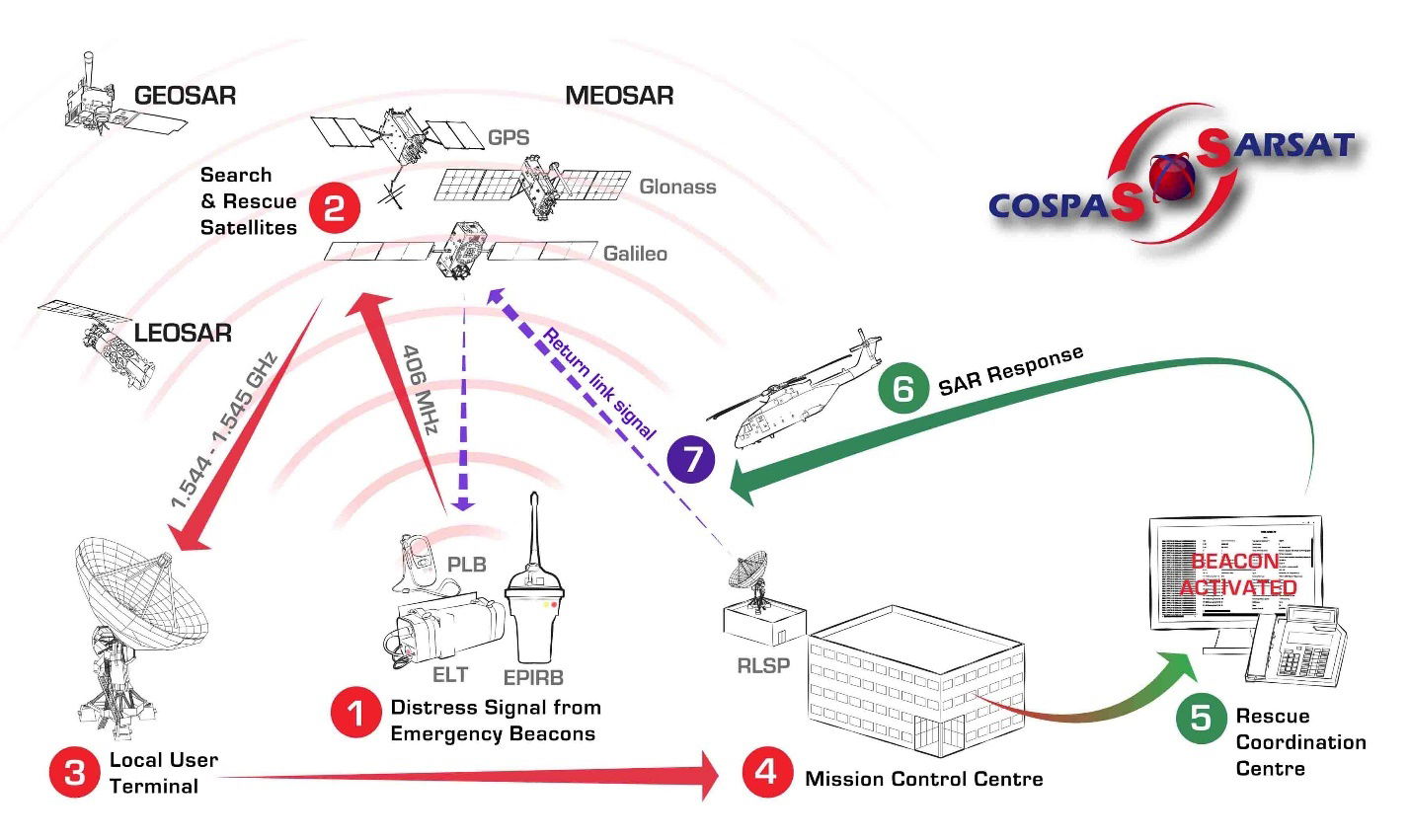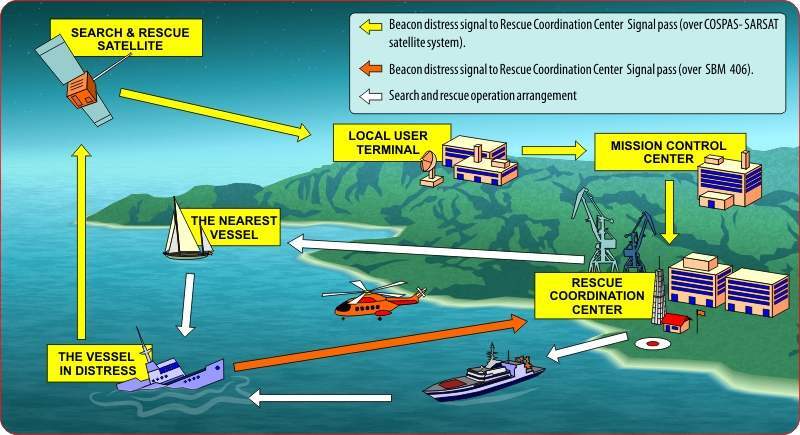COSPAS SARSAT

The International Cospas-Sarsat Programme is a satellite-aided search and rescue initiative. It is organized as a treaty-based, nonprofit, intergovernmental, humanitarian cooperative of 45 nations and agencies.
What is the meaning of COSPAS-SARSAT?
Cospas is an acronym for the Russian words “Cosmicheskaya Sistyema Poiska Avariynich Sudov,” which mean “Space System for the Search of Vessels in Distress.”Sarsat is an acronym for Search and Rescue Satellite-Aided Tracking.


How many satellites are in COSPAS-SARSAT system?
Eleven satellites in geostationary Earth orbit with GEOSAR (geostationary Earth orbit search-and-rescue) payloads. 46 satellites in medium-altitude Earth orbit with MEOSAR (medium-altitude Earth orbit search-and-rescue) payloads
What are the two types of COSPAS-SARSAT satellites?
There are three types of satellites in the Cospas-Sarsat system – Low-Earth Orbiting Search and Rescue (LEOSAR) satellites; Geostationary Orbiting Search and Rescue (GEOSAR) Satellites; and Medium-Altitude Earth Orbiting Search and Rescue (MEOSAR) Satellites.
What is Cospas-Sarsat and EPIRB system?
#EPIRB 6 min 934 views. Cospas-Sarsat is an international satellite-based system. It detects and locates the radio beacons activated by persons, aircraft or ships in life-threatening situations. The alert data is forwarded to authorities responsible for rescue operations
How is EPIRB activated?
What is the frequency of COSPAS-SARSAT EPIRB?406.025 MHz
What is the frequency of EPIRB?406 MHz Emergency Position Indicating Radio Beacon (EPIRB)
They transmit a digital identification code on 406 MHz and a low-power "homing" signal on 121.5 MHz
Who monitors EPIRB signals?
COSPAS-SARSATThe signal is detected by satellites operated by an international consortium of rescue services, COSPAS-SARSAT, which can detect emergency beacons anywhere on Earth transmitting on the distress frequency of 406 MHz.
What type of Cospas-Sarsat EPIRB is allowed in the Gmdss?
It is this fact that makes 406 MHz EPIRBs acceptable for the GMDSS. The LUT, after computing the location of the emergency beacon using Doppler processing, transmits an alert message to its associated mission control centre (MCC).


